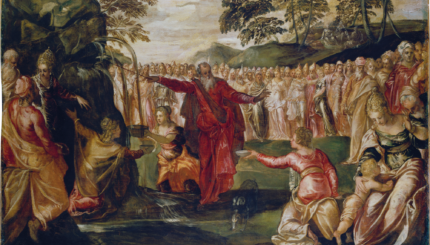From the villages of Eastern Europe comes an old, classic joke. Shmuel comes in the door with a sad face, telling Esther that the Czar has decreed that every Jew must convert and become Christian. “What shall we do?” cries Esther. “I don’t think we have a choice,” laments Shmuel, “we have to convert.”
The next day Shmuel comes in the door with joy shining in his face. “Esther! Esther! Guess what – the decree has been reversed. We don’t have to be Christians anymore!” Esther gives Shmuel a rueful look. “That’s wonderful, but can we wait until after Passover to convert back?”
For the homemaker, Passover can be a LOT of work. There is meticulous cleaning, different pots and pans and dishes, and all sorts of strictures on food. In the end, however, contrary to the joke, it might be the most beloved Jewish holiday. Because Passover also sends beautiful messages of freedom and redemption, is filled with family and expresses the deep beauty of Jewish belief. As we gather around the seder table next week the fortunate among us feel the reward for all that work — we are Jews, and we are free.

Help us keep Jewish knowledge accessible to millions of people around the world.
Your donation to My Jewish Learning fuels endless journeys of Jewish discovery. With your help, My Jewish Learning can continue to provide nonstop opportunities for learning, connection and growth.
Check out these ten Jewish Passover customs from around the world.
Rabbi David Wolpe’s musings are shared in My Jewish Learning’s Shabbat newsletter, Recharge, a weekly collection of readings to refresh your soul. Sign up to receive the newsletter.



